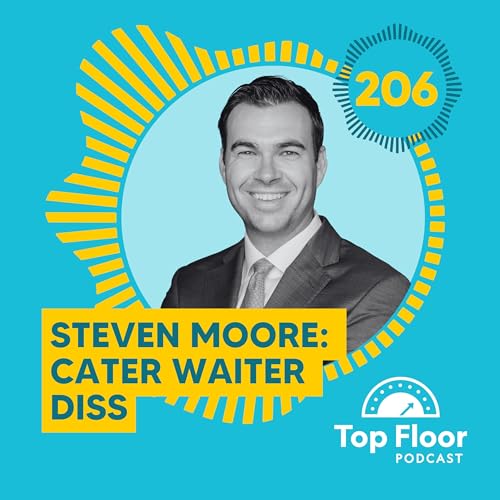Laura Hawkins is the founder of Gamemasters Escape Solutions, a creator and operator of high-performing escape rooms for hotels and resorts. After a successful career making viral television advertising, she discovered escape rooms on a European trip. She turned a passion project into a 14-room operation and a turnkey hotel amenity business (including installs at Atlantis, The Bahamas). She joins us to talk revenue, resorts, and escape room design.
• Budget-season hot take: maximize social first and add hyper-targeted print ads if you have the cash.
• From receptionist to rainmaker: Laura hustled her way off the front desk and into award-winning ads.
• “Just Slow Down”: the graphic traffic-safety campaign that made her the Quentin TarantinA of Winnipeg.
• Vacation plot twist: one so-so Dublin escape room → Athens upgrade → Paris hook → new career.
• Resorts love it: low staff, durable props, and constant revenue.
• Corporate catnip: team-building, communication, respectful-collaboration—plus a true differentiator vs. the hotel next door.
• Design recipe: theme first → story → tactile puzzles (knobs, secret doors, scents)… and yes, limes.
• Player pro tip: communicate, inventory the space, and OPEN. THE. DRAWERS.
Our Top Three Takeaways:
1. Escape Rooms Are a High-ROI Amenity for Hotels and Resorts
Laura emphasized that escape rooms offer hotels a unique way to generate revenue while differentiating from competitors. Unlike spas or waterparks, escape rooms appeal to a wider demographic—from families with young kids to teenagers, grandparents, wedding parties, and corporate groups. They’re low-labor, durable, and cost far less to install and maintain, while still driving constant guest traffic and ancillary spending at restaurants and bars.
2. Immersive Entertainment Strengthens Guest Connection
For Laura, the heart of escape rooms is shared experience. Guests disconnect from screens, collaborate face-to-face, and leave with stories they’ll continue discussing long after the game. This creates a sense of joy and connection that builds loyalty and word-of-mouth—two of the strongest assets for hotels seeking repeat visits and community engagement.
3. Differentiation Requires Courage and Creativity
Laura challenged hotels to show more boldness in shaping guest experiences. Too many properties look the same, leaving price as the only deciding factor. By embracing immersive, playful, and customizable amenities—like themed escape rooms or even immersive dinner theater—hotels can stand out, create memorable stays, and deliver new revenue streams.
Laura Hawkins on LinkedIn
https://www.linkedin.com/in/laura-hawkins-40543319b/
Gamemasters Escape Solutions
https://www.gamemastersescapes.com/
Escape Room Atlantis
https://www.atlantisbahamas.com/escape-room
First-Person Experience at Atlantis
https://www.tiktok.com/@znsdigital/video/7512226338397359365
Escape Room Video
https://www.youtube.com/watch?v=EOcy5xGcHu8
Just Slow Down viral ad
https://www.youtube.com/watch?v=9HppFNyqVOI
Other Episodes You May Like:
168: Celery in the Hoodie with Paul Bishop
https://www.topfloorpodcast.com/episode/168
172: Pandemic Survivor Couple with Geetika Agrawal
https://www.topfloorpodcast.com/episode/172
101: Hedge Clipper Disaster Averted with Elysia Burns
https://www.topfloorpodcast.com/episode/101
 Sep 30 202541 m
Sep 30 202541 m Sep 23 202531 m
Sep 23 202531 m Sep 16 202543 m
Sep 16 202543 m Sep 9 202528 m
Sep 9 202528 m Sep 2 202536 m
Sep 2 202536 m Aug 26 202535 m
Aug 26 202535 m Aug 19 202535 m
Aug 19 202535 m Aug 12 202537 m
Aug 12 202537 m

